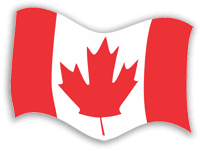|
William Lyon Mackenzie King’s grandfather was a rebel, who
probably would have been hanged if he had not fled to the United
States. King himself became Canada’s longest-serving and one of
its best prime ministers. King and the Liberal party governed
the country most of the time from 1921 to 1948. During those
years King’s greatest achievements were leading Canada through
World War II and introducing major social welfare policies.
William Lyon Mackenzie, a hot-tempered immigrant from Scotland,
led a brief rebellion against British rule in Upper Canada
(Ontario) in 1837. In 1874 his daughter, Isabel King, gave birth
to a son who had a very different temperament from the
grandfather. King was ambitious, clever, and well-educated at
the University of Toronto, the University of Chicago, Harvard,
and the London School of Economics.
He became an expert in labour relations and was appointed
Canada’s first Minister of Labour in the government of Sir
Wilfrid Laurier. In 1919 King succeeded Laurier as leader of the
Liberal party. After the 1921 election King became prime
minister, heading a minority government. He emerged from the
elections of 1925 and 1926 (and a serious constitutional
controversy with the governor-general, Lord Byng) as leader of a
majority government.
King was not a colourful or even a very popular politician but
he was very patient in adopting only policies designed to appeal
to the moderate majority of Canadians. Like Sir John A.
Macdonald and Sir Wilfrid Laurier before him, he hoped to unite
the country rather than divide it. During the prosperous 1920s
Canada was not a difficult country to govern. After the onset of
the Great Depression in 1929 the King government fell out of
touch and lost to R.B. Bennett’s Conservatives in 1930. When
Bennett failed to end hard times, King came back into office in
1935 and would never be beaten again.
As war in Europe loomed, King steered carefully between those
who wanted Canada to stay out of European affairs and those who
thought it important to support British policy. When Great
Britain went to war against Hitler’s Germany in 1939 Canada also
declared war. During the next six years the King government
organized a massive war effort that enlisted 1.1 million
Canadians in the army, navy, and air force. More than 40,000
Canadians were killed in battle. Canadian industry was fully
employed producing munitions and other war materials. A young
country coming to the aid of its motherland, the Canadian
government made significant loans to Great Britain.
Canadians were seriously divided on the issue of how to
reinforce the army. French Canadians strongly opposed the idea
of conscripting men for overseas service. After much hesitation
King managed to introduce conscription with a minimum of
national disunity.
There was less disagreement about the desirability of moving
Japanese Canadians away from the country’s Pacific coast, where
it was believed they might be a security risk. Putting Japanese
Canadians in camps in the interior of British Columbia has been
widely condemned as a blot on Canada’s record, as has its
reluctance to accept Jewish refugees from Nazi Germany. On the
other hand, World War II caused the government Canada gradually
to abandon policies based on racial exclusion and to become more
active in world affairs. Canada was a founding member of the
United Nations.
The hardships Canadians suffered during the Great Depression
convinced King that national social welfare programs should be
introduced when it was politically practical. In 1940 the King
government brought in Canada’s basic system of unemployment
insurance, and in 1944 introduced child allowances (nicknamed
baby bonuses) to assist poor families. King also passed
legislation giving important rights to labour unions and had
earlier introduced the first old age pensions.
When King retired he had been prime minister longer than anyone
in the history of British Commonwealth countries. He left his
Liberal party in good health; under his successor, Louis St.
Laurent, the Liberals formed the government through two more
elections.
After his death in 1950 it was revealed that King had been a
lonely man who worshipped his mother and his dogs and sometimes
sought advice from spiritualist mediums and fortune-tellers. He
kept detailed diaries which have many embarrassing passages. But
his diaries also show that King was masterful in his
understanding of Canadian politics and public issues. Cautious
and careful and sometimes slow to act, over the years King
possibly achieved more for Canada and his party than any other
prime minister.
He was never loved by Canadians or even by most members of his
Liberal party, but King was always respected. Not a bad record
of achievement for a rebel’s grandson.
Further Reading: Right Honourable Men: The Descent of Canadian
Politics from Macdonald to Chrétien, by Michael Bliss; Mackenzie
King: His Life and World, by J.L. Granatstein.
Next Instalment: Lester Pearson: A Nobel Prize and the Maple
Leaf Flag
The Canadian Experience is a 52-week
history series designed to tell the story of our country to all
Canadians. Sponsored by Multimedia Nova Corporation and
Diversity Media Services partners, the series features articles
by our country’s foremost historians on a wide range of topics.
Past articles and author bios are available at
http://www.cdnexperience.ca. The Canadian
Experience is copyright ©2010-2011 Multimedia Nova
Corporation.
|
|
 #19 Prime Minister Forever: Mackenzie King
#19 Prime Minister Forever: Mackenzie King
